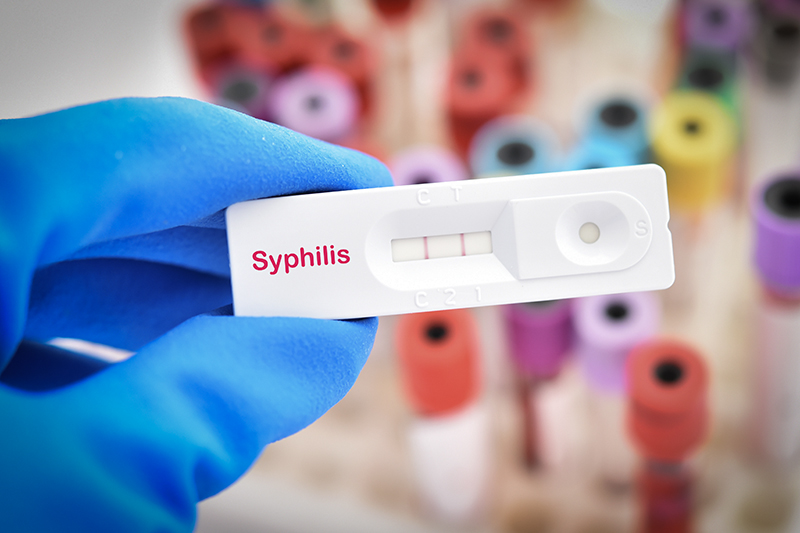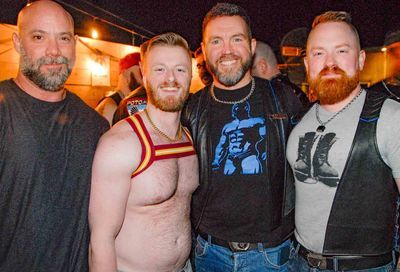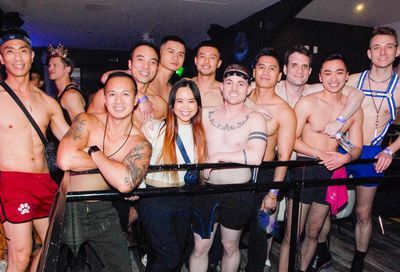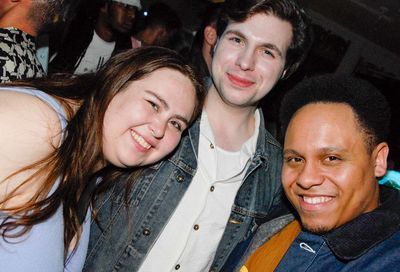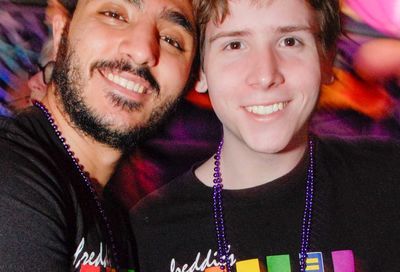Study: Bisexual people face tougher health and economic struggles
Bisexual individuals are less likely to be currently working and more likely to rely on public benefits

Bisexual people face more struggles in health care, economic security, and other areas than their gay, lesbian, or straight counterparts, new research has shown.
Analysis of a survey by the Center for American Progress shows that 24% of bisexual and queer men reported living in poverty, a rate that is four times higher than their straight counterparts and twice the rate of gay men living in poverty.
Lesbians and straight women were equally as likely to report living in poverty, with 13% and 14%, respectively, saying they did. By comparison, 21% of bisexual women reported that they were living in poverty.
Bisexual men were less likely to say they were working than their gay or straight counterparts, with only 65% saying they were employed, compared with 70% and 76%, respectively. Only 53% of bisexual women reported they were currently working, versus 65% of straight women and 76% of lesbian women.
Prior research had lumped together lesbian and bisexual women, thereby erasing the stark differences in employment rates.
Bisexual people, particularly bisexual women, are more likely to rely on public benefits than their straight counterparts. For example, 16% of bisexual men and gay men reported using SNAP benefits, or food stamps, compared to 10% of straight men. Comparatively, 27% of bisexual women reported receiving food stamps, compared to 10% o lesbian and straight women.
Twenty-one percent of bisexual women and 20% of bisexual men report that they rely on Medicaid for their health care. By comparison, 10% of lesbian women and 18% of gay men report being Medicaid beneficiaries, and 18% of straight women and 9% of straight men received Medicaid benefits.
A higher percentage of both bisexual men and women reported that they had poorer physical and mental health outcomes than their monosexual peers. CAP notes in its analysis that prior research has linked coming out of the closet with more positive health outcomes.
But because bisexual people are less likely to have disclosed their sexual orientation to important people in their lives, which may account for the differences between bisexual respondents and their gay and lesbian peers.
Disturbingly, while only 19% of bisexual women and 36% of lesbian women have reported experiencing discrimination based on their sexual orientation in the past year, nearly half of both groups have reported experiencing discrimination for any reason over the past year.
Meanwhile, only 33% of straight women have reported experiencing discrimination over the past year.
Similarly, 10% of bisexual men and 27% of gay men have reported experiencing discrimination specifically based on their sexual orientation over the past year.
But 28% of bisexual men and 40% of gay men reported experiencing some type of discrimination over the past year for any number of reasons, while only 24% of straight men reported experiencing discrimination.
“Bisexuals and other non-monosexual people make up about half of the LGBTQ community, and grouping them together with gay and lesbian respondents obscures key differences in their experiences,” Shabab Ahmed Mirza, a research assistant for the LGBT Research and Communications Project at CAP and the author of the fact sheet, said in a statement. “Considering the data separately can help foster a better understanding of their unique needs and improve our ability to develop policies and programs that effectively serve the community.”
Support Metro Weekly’s Journalism
These are challenging times for news organizations. And yet it’s crucial we stay active and provide vital resources and information to both our local readers and the world. So won’t you please take a moment and consider supporting Metro Weekly with a membership? For as little as $5 a month, you can help ensure Metro Weekly magazine and MetroWeekly.com remain free, viable resources as we provide the best, most diverse, culturally-resonant LGBTQ coverage in both the D.C. region and around the world. Memberships come with exclusive perks and discounts, your own personal digital delivery of each week’s magazine (and an archive), access to our Member's Lounge when it launches this fall, and exclusive members-only items like Metro Weekly Membership Mugs and Tote Bags! Check out all our membership levels here and please join us today!



